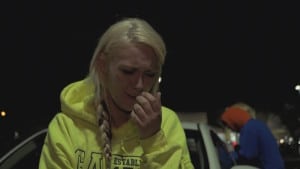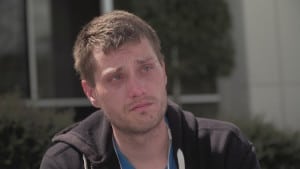With the opioid crisis escalating, Emmy-winning A&E docuseries Intervention is taking a different, even more intense storytelling approach this season. Executive producers Tom Greenhut and Gary Benz explain what might take viewers by surprise. Season premieres Tuesday, January 2 at 9p.
Cynopsis: How will this season of Intervention differ from past seasons?
Tom Greenhut: One of the first things that fans of Intervention, old and new, will notice is that for this elevated version of the series, we have created a serialized, season-long arc, allowing for a deeper dive into each of the addict stories and more. After 12-plus years giving a face to addiction, and having followed the escalating opioid crisis in the U.S., we felt that we had the means to go deeper than the smattering of expose docs on the epidemic that have popped up in the last year. While those docs point to the problem, with our collective knowledge and experience, and our incredibly dedicated team of recovery experts, we knew we had to do more.
To truly begin to understand the opioid and heroin epidemic in our country, we would need to embed ourselves directly into ground zero – in this case, rallying around the Atlanta metro suburbs of Georgia, in an area that has come to be known as the Heroin Triangle – focusing our attention on the various perspectives we could glean through city officials, police, and fire departments, as well as locals on the frontlines who have been directly affected. And of course, our goal, as always, is to bring our unique brand of help and hope, simultaneously working directly with multiple addicts and their families in this one location, offering long term recovery solutions to people in a desperate situation.
Cynopsis: What will viewers learn about the opioid crisis that might surprise them?
Gary Benz: Viewers will learn just how easy it is to fall victim to opioid deficiency and that addiction often runs through many generations within a family. They’ll gain insight to the value of community outreach and the benefits of city officials that are educated and open to new approaches to handling the crisis. They may also be surprised that many addicts are able to hide their addiction until they are so far gone that it becomes extremely difficult to provide the professional help they need in time.
Greenhut: Many viewers will be surprised by the unexpected nature of the location itself. The suburbs outside of Atlanta metro are a beautiful, idyllic backdrop with quaint, southern roots and a generally higher socio-economic status. I believe many will be shocked by the fact that opioids, especially heroin, that have historically been regarded as an “inner city” problem or a “rock star chic” drug as it had become in the ‘90’s, has shifted wildly across the country, infecting America’s suburbs.
Cynopsis: What was the biggest challenge for the interventionists?
Benz: our team needed to deal with a large number of individual addicts all during a 90-day period of time. And, this group of seemingly disparate individuals, were all interconnected, so often our Interventionists were literally juggling their chaotic lives and lies as they worked to get them and their families into treatment.
 The interventionists were also put to task working with city officials and community members to gain a deeper understanding of the entire community that they’re working within in order to provide the best local resources for each family in crisis. They had to be ready to shift gears quickly, intervene in less than typical situations and work together at times to help get addicts and families to accept the help they so desperately need.
The interventionists were also put to task working with city officials and community members to gain a deeper understanding of the entire community that they’re working within in order to provide the best local resources for each family in crisis. They had to be ready to shift gears quickly, intervene in less than typical situations and work together at times to help get addicts and families to accept the help they so desperately need.
Greenhut: In this new incarnation of Intervention, our team of experts had to work overtime in handling not only the willful nature of the addicts, which was particularly acute in our experience in the Atlanta suburbs, but also the willfulness of the families themselves. While this is a fairly common occurrence, it was particularly challenging to simply get families on the same page, many of whom were deeply enmeshed in co-dependent relationships with their loved ones. It absolutely epitomized the family cycle of addiction.
The Cynsiders column is a platform for industry leaders to reach out to colleagues, followers, and the public at large. In their own words and in targeted Q&As, columnists address breaking news, issues of the day, and the larger changes going on in the ever-evolving world of television, video and digital. Cynsiders columns live on Cynopsis’ main page and are promoted across all daily newsletters. We welcome readers’ comments, queries, and column ideas at [email protected].







